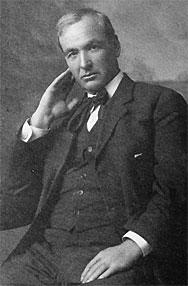Who was Ed Howe? Music historians and textual critics have been wondering ever since the 1969 release of the Beatles' "Something."
Beatles guitarist George Harrison wrote the song, and had a cold when he sang it. Coupled with his Liverpudlian accent, Harrison's catarrh-inflected enunciation made it hard for listeners to understand some of the lyrics, especially "I don't want a Leiber now / You know I believe Ed Howe."
The identity of Leiber requires little speculation: George was obviously referring to Jerry Leiber of the songwriting duo Leiber & Stoller, writers or co-writers of American pop classics such as "Hound Dog," "Stand by Me" and "On Broadway." The reference reflects the Spiritual One's disillusionment with fame, and his wish to cease concerning himself with songwriters and, especially, with musical partners. Hence, "I don't want a Leiber now."
The matter of Ed Howe requires deeper thought. It's useful to remember Harrison's interest in comedy, exemplified by his friendship with and support for the English troupe Monty Python. George scoured the globe for obscure jokesters, and became a devotee of the Kansas humorist and journalist Edger W. Howe, owner of the Atchison Globe. Active during the early 20th century, Howe named his estate Potato Hill and became known as the Sage of Potato Hill. He also founded an organization called the Don't Worry Club, the inspiration for Mad magazine's "What, me worry?" kid, Alfred E. Neuman, whose ears stuck out the same way George's did.
Like John Lennon's "How Do You Sleep?," "Something" was a critique of Paul McCartney, author of the Beatles song "Fool on the Hill," reputed to be about George's guru, the Maharishi Mahesh Yogi. Dismayed at having his master called a fool on a hill, Harrison obliquely referred to the Sage of Potato Hill -- suggesting that Howe, the Maharishi and George himself could all join the Don't Worry Club without being idiots.
Thus, "You know I believe Ed Howe."

